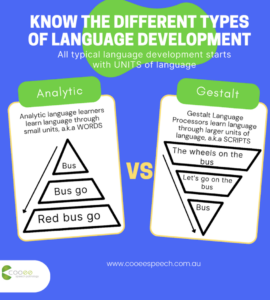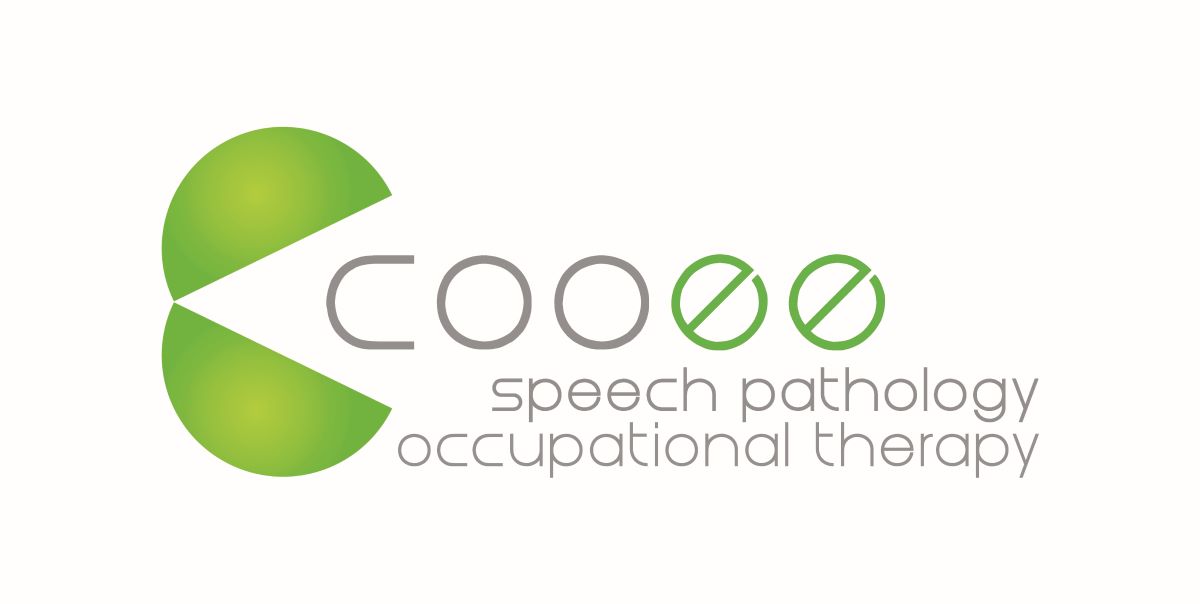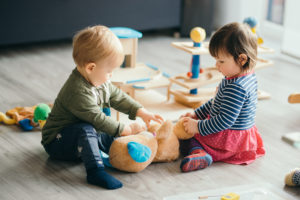How does Language Develop?
How do we develop language? How do we go from babbling to having conversations?
All typical language development starts with units of language, but those units look different depending on the type of language development. Children can develop their language in two ways: analytic and gestalt.

Analytic Language Development
Let’s talk about analytic language development first.
Analytic language learners develop language through small units – words.
Take Child A. Every time they come to therapy, they see a large vehicle on the road that transports multiple passengers and they assign a word to that object and say that single word.
“bus”
Analytic language learners start at the single word level, then move to 2 word, 3 word, 4 word combinations, and so on.
go bus
red bus
red bus go
Gestalt Language Processors
Gestalt language processors are children who learn language through units of language as well, but these units are larger and can be referred to as “gestalts” or “scripts”.
Take Child B. Every time they go shopping, their mum parks on the top carpark roof and says “we’re on the roof”.
Child B assigns the memory of that longer phrase to that lived experience; the next time the child wants to go shopping, rather than using a small unit of language (i.e. a single word), they repeat the whole phrase.
“we’re on the roof”
This means, a gestalt language processor hears a script (a phrase, a sentence, a whole paragraph) in a moment that is meaningful to them or tied to an emotional experience, and remembers that script and repeats it later to communicate.
Because gestalt language processors process at the level of larger units, they initially don’t understand that the single words in the longer units (scripts) have meaning.
Child B initially didn’t understand that a “roof” is the thing on top of a building. Rather, they remembered their mum say the longer unit “we’re on the roof” when they were at the shops, so now the child uses that script to request shopping.
As a gestalt language processor’s language develops, they begin to break down the long units into smaller units of meaning (e.g. shorter phrases or single words). Once a gestalt language processor understands that single words hold meaning, they then begin to combine these single words back into longer units of meaning (e.g. phrases, sentences). This process of language development is referred to as following the Natural Language Acquisition framework.
When to Seek Support
Both analytic language development and gestalt language processing are typical and natural ways of developing language.
Children who are analytic and gestalt language processors can move through the stages of language development and produce flexible, functional language without support.
Speech Pathologists can help when a child’s language development becomes “stuck”.
For analytic language processors, this may look like a young child speaking in shorter phrases than their peers. For example, a three year old who is only using single words to express themselves e.g. “up” to request to be picked up by a parent.
For a gestalt language processor, this may look like a child who is using rigid, inflexible scripts that are not yet functional. For example, a child who says “to infinity and beyond” to request to be picked up because they heard Buzz Lightyear say that on the TV when their dad picked them up in their living room. This child does not yet understand the single words in the long script have meaning. Rather, they are stuck using a longer script to make a request that may not make sense to their communication partners.
What can Communication Partners Do?
Firstly, if you have concerns regarding your child’s language development, I would encourage you to contact a Speech Pathologist.
In the meantime, regardless of whether your child is an analytic or gestalt language processor, the first step is acknowledging and validating their communication attempt. When your child says something, you could nod your head, smile, be positive or repeat what they have said.
Then, we want to do the detective work. We want to work out the child’s intended meaning behind their communication attempt. For an analytic language processor, when they say “up”, they may mean “pick me up”. For a gestalt language processor, when they say “to infinity and beyond”, they may be trying to convey the same message.
Next, we want to interpret their message and model functional language. We might say “pick me up” – without expecting the child to repeat our model – as this is what both children are trying to convey.
Whether your child appears to be developing their language through an analytic or gestalt route, both language processing types are natural and typical ways of developing language, and should be celebrated.

Robbie Corgat
Speech Pathologist


